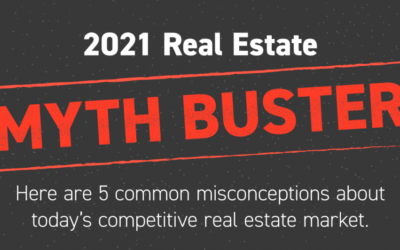
“Here’s a list of things you shouldn’t do after applying for a mortgage. They’re all important to know – or simply just good reminders – for the process.”
Once you’ve found the right home and applied for a mortgage, there are some key things to keep in mind before you close. You’re undoubtedly excited about the opportunity to decorate your new place, but before you make any large purchases, move your money around, or make any major life changes, consult your lender – someone who is qualified to tell you how your financial decisions may impact your home loan.
Below is a list of things you shouldn’t do after applying for a mortgage. They’re all important to know – or simply just good reminders – for the process.
1. Don’t Deposit Cash into Your Bank Accounts Before Speaking with Your Bank or Lender. Lenders need to source your money, and cash is not easily traceable. Before you deposit any amount of cash into your accounts, discuss the proper way to document your transactions with your loan officer.
2. Don’t Make Any Large Purchases Like a New Car or Furniture for Your New Home. New debt comes with new monthly obligations. New obligations create new qualifications. People with new debt have higher debt-to-income ratios. Higher ratios make for riskier loans, and then sometimes qualified borrowers no longer qualify.
3. Don’t Co-Sign Other Loans for Anyone. When you co-sign, you’re obligated. With that obligation comes higher ratios as well. Even if you promise you won’t be the one making the payments, your lender will have to count the payments against you.
4. Don’t Change Bank Accounts. Remember, lenders need to source and track your assets. That task is significantly easier when there’s consistency among your accounts. Before you transfer any money, speak with your loan officer.
5. Don’t Apply for New Credit. It doesn’t matter whether it’s a new credit card or a new car. When you have your credit report run by organizations in multiple financial channels (mortgage, credit card, auto, etc.), your FICO® score will be impacted. Lower credit scores can determine your interest rate and maybe even your eligibility for approval.
6. Don’t Close Any Credit Accounts. Many buyers believe having less available credit makes them less risky and more likely to be approved. Wrong. A major component of your score is your length and depth of credit history (as opposed to just your payment history) and your total usage of credit as a percentage of available credit. Closing accounts has a negative impact on both of those determinants of your score.
Bottom Line
Any blip in income, assets, or credit should be reviewed and executed in a way that ensures your home loan can still be approved. If your job or employment status has changed recently, share that with your lender as well. The best plan is to fully disclose and discuss your intentions with your loan officer before you do anything financial in nature.
To view original article, visit Keeping Current Matters.
Don’t Sell on Your Own Just Because It’s a Sellers’ Market
Real estate professionals are trained negotiators with a ton of housing market insights that average homeowners may never have.
Your Tax Refund and Stimulus Savings May Help You Achieve Homeownership This Year
Your tax refund may cover more of a down payment than you realize.
2021 Real Estate Myth Buster
Here’s a little clarity when it comes to 5 common myths about the 2021 housing market. Let’s connect to discuss your needs and so you can decipher facts from fiction in our local market.
How a Change in Mortgage Rate Impacts Your Homebuying Budget
Anytime there’s a change in the mortgage rate, it affects what buyers can afford to borrow when buying a home.
What It Means To Be in a Sellers’ Market
Low mortgage rates and a year filled with unique changes have prompted buyers to think differently about where they live – and they’re taking action.
Buyer & Seller Perks in Today’s Housing Market
Buyers are clearly eager to purchase so homeowners who are in a position to sell shouldn’t wait to make their move!





